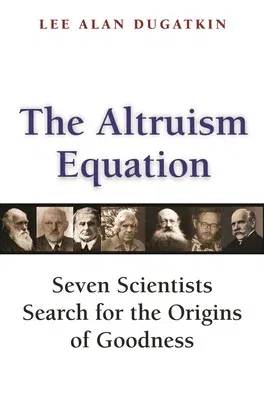In a world supposedly governed by ruthless survival of the fittest, why
do we see acts of goodness in both animals and humans? This problem
plagued Charles Darwin in the 1850s as he developed his theory of
evolution through natural selection. Indeed, Darwin worried that the
goodness he observed in nature could be the Achilles heel of his theory.
Ever since then, scientists and other thinkers have engaged in a fierce
debate about the origins of goodness that has dragged politics,
philosophy, and religion into what remains a major question for
evolutionary biology.
The Altruism Equation traces the history of this debate from Darwin to
the present through an extraordinary cast of characters-from the Russian
prince Petr Kropotkin, who wanted to base society on altruism, to the
brilliant biologist George Price, who fell into poverty and succumbed to
suicide as he obsessed over the problem. In a final surprising turn,
William Hamilton, the scientist who came up with the equation that
reduced altruism to the cold language of natural selection, desperately
hoped that his theory did not apply to humans.
Hamilton's Rule, which states that relatives are worth helping in direct
proportion to their blood relatedness, is as fundamental to evolutionary
biology as Newton's laws of motion are to physics. But even today,
decades after its formulation, Hamilton's Rule is still hotly debated
among those who cannot accept that goodness can be explained by a simple
mathematical formula. For the first time, Lee Alan Dugatkin brings to
life the people, the issues, and the passions that have surrounded the
altruism debate. Readers will be swept along by this fast-paced tale of
history, biography, and scientific discovery.

